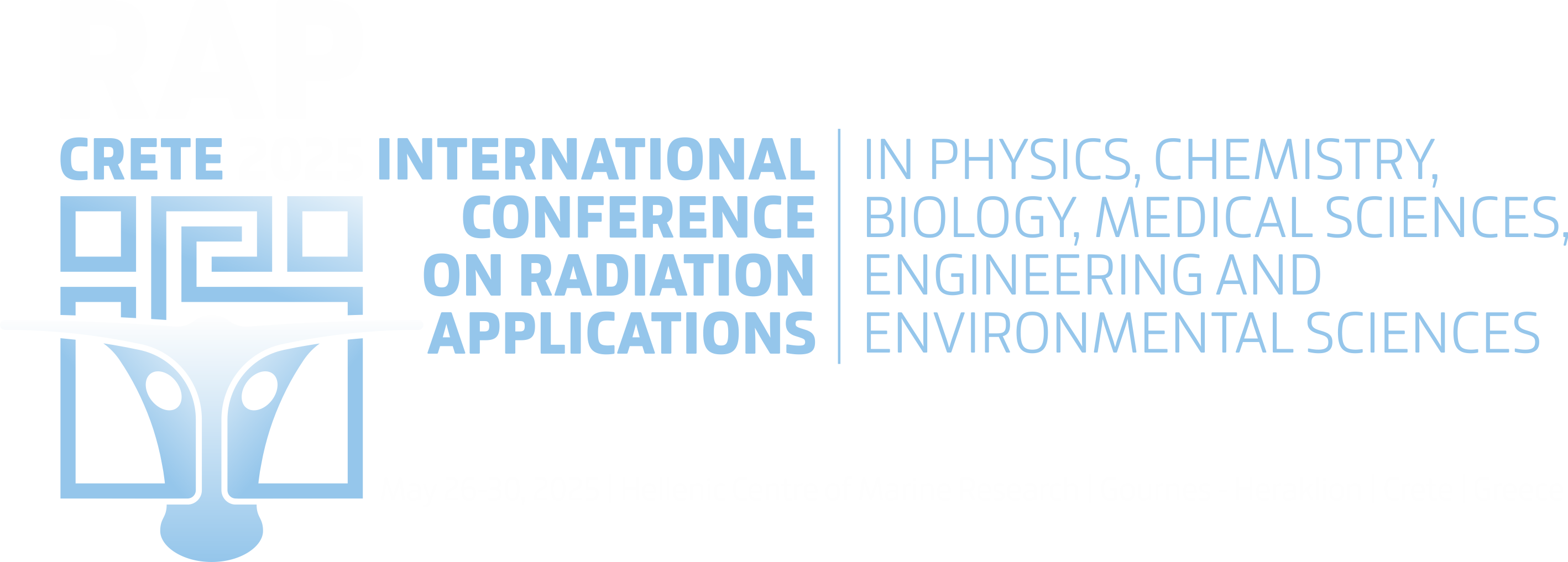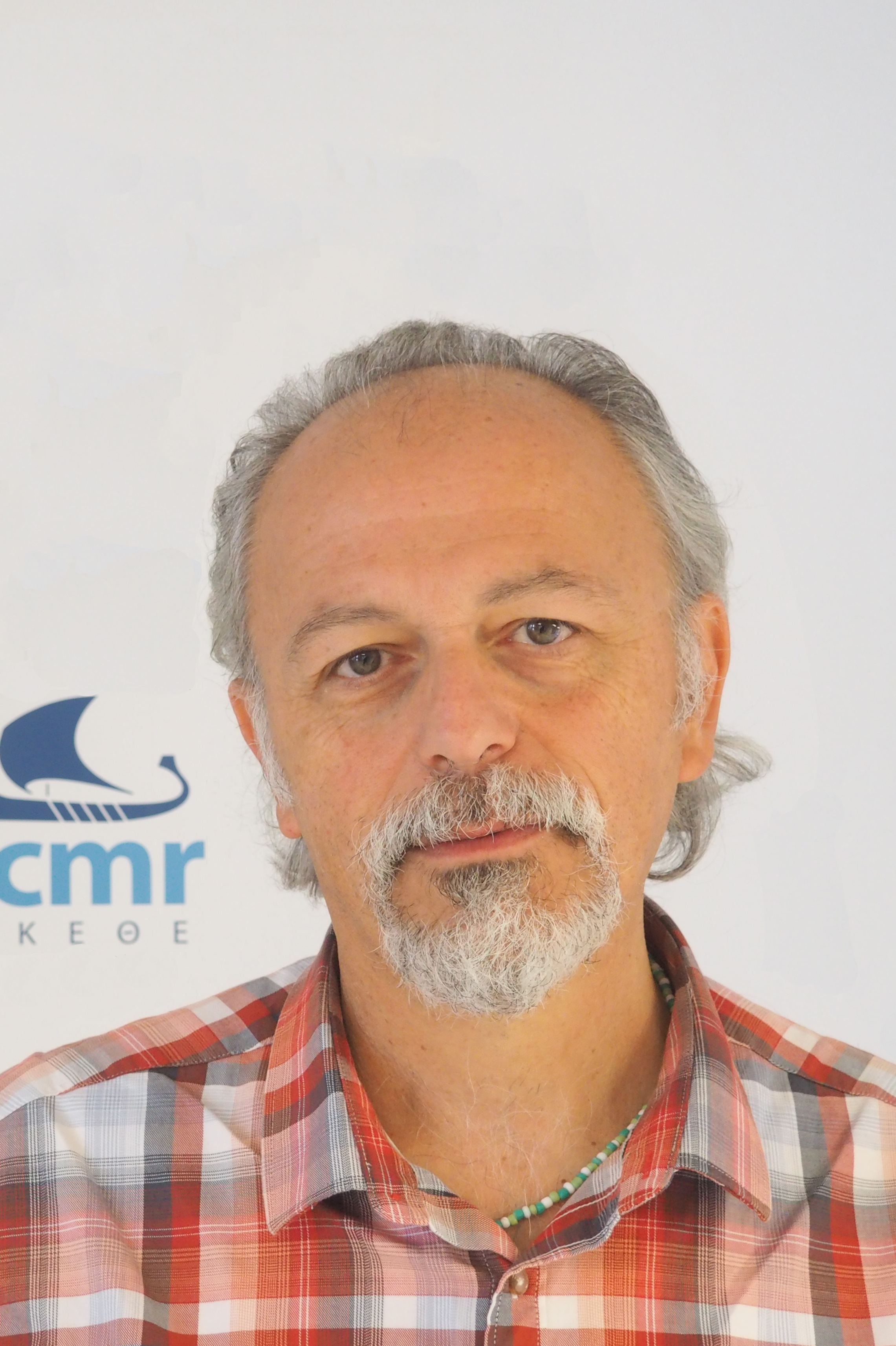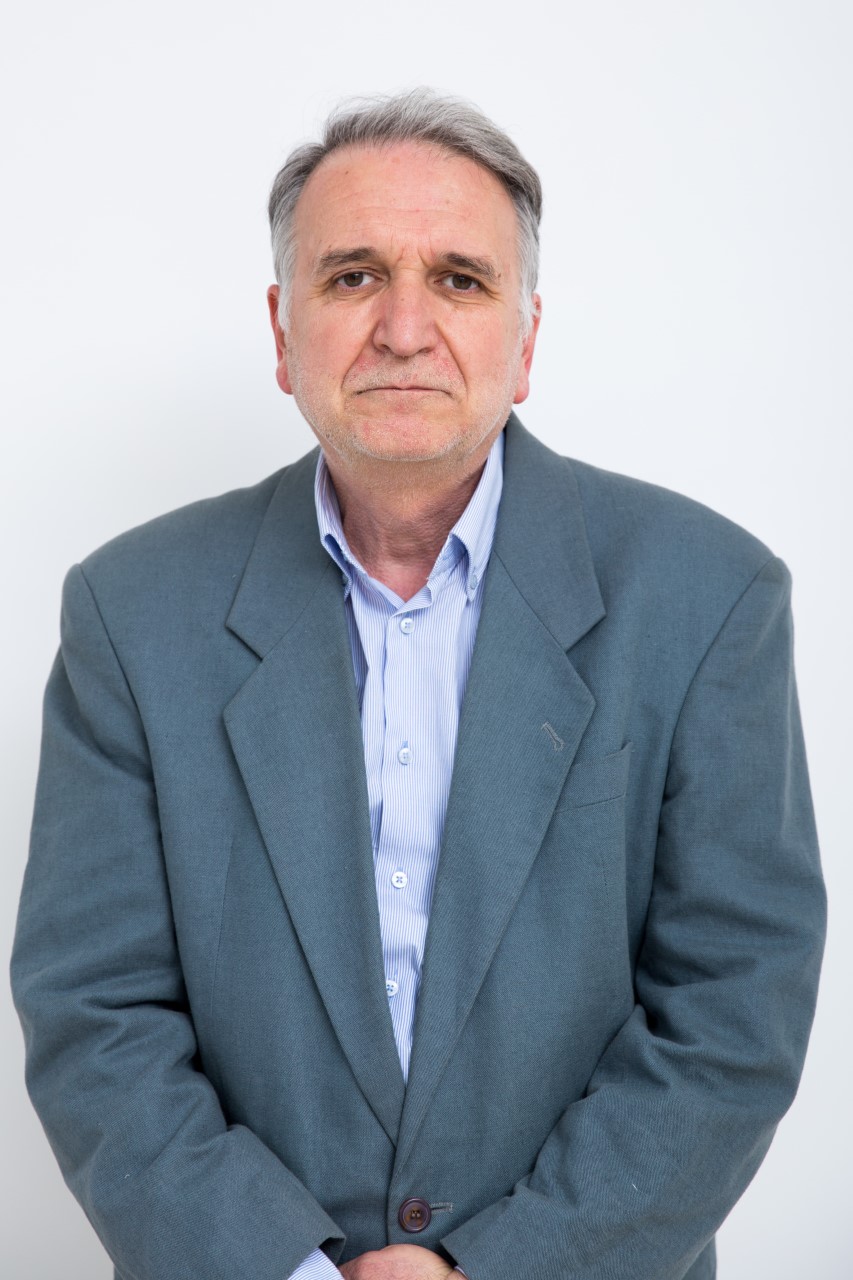
30 June 2025
PRESENTATIONS FROM RAP 2025 CONFERENCE
Some invited, oral and poster presentations from RAP 2025 Conference can be found here.
Also, the presentations from the Virtual Offline Session are available here.
22 June 2025
RAP 2025 Gallery
• Photos from the official opening, plenary and oral sessions can be seen here.
• Photos from poster sessions can be seen here.
• Photos and videos from the social events and various photos can be seen here.
If you want to share your photos from RAP 2025 Conference, please send them to info@rap-conference.org
16 June 2025
Full papers – deadlines and instructions
We would like to remind the participants that the deadlines for submission of full papers are as follows:
- For Conference Proceedings: 31 July 2025
- For the Special Issue of EPJST: 31 August 2025
Instructions for submission are available here.
3 June 2025
Thank You for Making RAP 2025 a Remarkable Success!
We would like to express our sincere gratitude to all participants for contributing to the success of the RAP 2025 Conference. Your active involvement and valuable scientific contributions made this year’s event truly memorable and impactful.
RAP 2025 gathered around 140 participants from 43 countries across the globe — marking a new attendance record in the history of the RAP conference series. In addition to the vibrant onsite presence, we were pleased to host over 30 online participants, as well as 15 participants in the virtual offline session, enabling broader accessibility and engagement.
Your dedication to advancing scientific knowledge and your willingness to share expertise played a vital role in the success of this event. We are proud to have brought together such a diverse and inspiring community of researchers and professionals.
Please note that other materials from RAP 2025, such as photos, presentations, Book of Abstracts, information on full paper submission etc. will be posted on the conference website in the upcoming weeks.
Thank you once again for being part of RAP 2025 — we look forward to seeing you at future editions!
Next stop: Lisbon, Portugal, 25–29 May 2026.
22 May 2025
Update about the situation in Crete
We are in constant contact with our Greek colleagues regarding the situation in Crete. After the earthquake, things are getting back to normal and they are in their offices. RAP 2025 Conference will be organized as planned.
21 May 2025
Details of social programme
We have arranged rich social programme for RAP 2025 onsite participants and accompanying persons, as follows:
-
Visit to CRETAquarium:
Available visit days: Monday, 26 May to Friday, 30 May from 9:30 to 19:00 daily. - Welcome Cocktail: Monday, 26 May at 19:30 on the Veranda of of CRETAquarium
-
Conference Excursion: Visit to Knossos Palace and Heraklion Archeological Museum
Departure on Wednesday, May 28 at 11:00 from HCMR -
Conference Dinner: Thursday, May 29, from 21:00 – midnight (approx.)
Location: Taverna KRITES - Ταβέρνα ΚΡΗΤΕΣ, www.kritesplace.gr -
Bonus excursion: Visit to Ag. Nikolaos
Departure on Friday, May 30 at 10:00 from HCMR, return to HCMR/Heraklion at 19:30/20:00. Exact time and departure point from Heraklion will be defined later.
Participants who are interested in visiting Spinalonga will be taken to nearby Elounda or Plaka, where they may find a boat for the trip to the island. The ticket for the boat and the entrance ticket are not included in the conference fee.
21 May 2025
Shuttle bus service between Heraklion and HCMR
-
Departure from Heraklion: Mon/Tue/Wed/Thu at 08:00. Departure
point near the Heraklion port and another stop in the town are shown on
the map below.
- Departure to Heraklion: Mon at 22:00 (after Welcome Cocktail); Tue at 20:00; Thu at 24:00 (from Taverna Kritis, after Conference Dinner)

18 May 2025
Poster printing service
We have arranged poster printing service with a local printing company.
Interested participants should upload their posters using the link below. Posters should be in .PDF format, size A0 (85 X 118 cm).
https://cloudfs.hcmr.gr/index.php/s/5tWu8Uw5h3Hvp2P
Posters can be collected at the registration desk. The cost of this service is 33 EUR (for 250 grams photopaper), payable in cash at the registration desk.
17 May 2025
Conference Programme
The current version of the Conference Programme can be found on the following link - https://drive.google.com/drive/folders/1qN29kdYKz1SjAvwoPEgTX2Rjt2hAhujm?usp=sharing. Alternative link - https://mega.nz/folder/3BFX0IpQ#GBgw0FETBZTsGglSsMHAmQ
Please check this link regularly since changes might occur before the start of the conference.
3 April 2025
Registration is open
Registration for the conference is now open. Participants (onsite, online, and virtual) are kindly asked to register at their earliest convenience using the Registration Form. Onsite participants should register after making the choice of their accommodation, in Gournes area or in Heraklion town.
We advise participants that early booking of accommodation is strongly recommended.
3 April 2025
Abstract portal is still open
The official deadline for abstract submission has passed, but the Abstract Portal is still open and late abstracts are being accepted.
We advise participants who wish to submit their abstracts to contact us to discuss the acceptable final deadline.
1 March 2025
Extension of abstract submission deadline
Upon request of some prospective RAP 2025 participants, the abstract submission deadline has been extended to 31 March 2025.
30 January 2025
SPECIAL ISSUE IN THE EUROPEAN PHYSICAL JOURNAL SPECIAL TOPICS
We are happy to announce that the RAP 2025 Conference has reached an agreement with The European Physical Journal Special Topics on publication of the special issue with full papers based on conference contributions. The deadline for submission of manuscripts is 31 August 2025. Further information about the special issue and instructions for manuscript submission will follow in due course.
09 December 2024
We are happy to announce a Special Session entitled “Radiation safety in buildings” at RAP 2025 Conference.
The primary factors of radiation risk are homes and workplaces, as people spend 80-90% of their time indoors. Inside buildings, internal exposure (to radon) and external exposure (to gamma radiation emitted by building materials) are usually higher (and sometimes significantly higher) than outdoors. This risk can be regulated and should be reduced by fundamental guidelines issued by authoritative international organizations such as the IAEA, ICRP, WHO, and the Euratom Community (EU-BSS).
The session will address good regulatory practices and highlight several gaps and challenges within European and international regulatory systems. It will focus on mitigating risks for both workers and the public, developing novel measurement techniques for indoor radon/thoron and NORM in building materials, and standardizing existing methods. This includes analyzing the variability of measurement results, assessing conformity with normative levels, and refining decision-making procedures. Participation from PhD students, researchers, inspectors, regulators, and mitigation experts is highly welcomed.
Chairperson: Prof. Konstantin Kovler, National Building Research Institute, Faculty of Civil and Environmental Engineering, Technion – Israel Institute of Technology
29 November 2024
We are happy to announce a Special Session entitled “Soft-matter lithography and nanofabrication with ionizing radiation” at RAP 2025 Conference.
Electron irradiation became an important and versatile tool for soft-matter lithography and nanofabrication. Dedicated molecular design and precise adjustment of irradiation dose and electron energy give broad flexibility in the character of the fabricated patterns and nanoobjects. Along with conventional lithographic patterns, complex chemical, morphological, and biological patterns can be created with high precision. Functional, free-standing carbon nanomembranes with adjustable parameters, such as thickness, porosity, and specific chemical character, can be fabricated. Complex 3D nanopatterning can be performed by focused electron beam-induced deposition (FEBID), relying on electron-induced dissociation and deposition of the precursor molecules. The above approaches rely on the understanding of the relevant electron-induced processes which requires their fundamental studies for model and real systems.
In this special session, recent advancements in the understanding of irradiation-induced processes in relation to molecules and soft-matter templates and the respective lithography and nanofabrication techniques will be presented.
Chairperson: Prof. Michael Zharnikov, Applied Physical Chemistry, Heidelberg University, Germany
We are happy to announce a Special Session entitled “Physicochemical processes involved in the DNA/RNA-radiation interaction” at RAP 2025 Conference.
Various types of radiation (UV, X-rays, gamma rays, ion beams,…) are known to interact with DNA/RNA, ultimately leading to mutations or cell death. The interaction may be direct, giving rise to electronic excitation or ionization of the nucleic acids, or indirect. In the latter case, the primary target is the environmental water or other endogenic or exogenic molecules present in the cell. Subsequently, the produced chemical species attack the nucleic acids. Considerable effort is dedicated to the understanding of the physicochemical mechanisms involved in these processes. The information derived from their characterization may contribute to the application of appropriate protection methods, the development of improved therapeutical procedures, as well as to the design of DNA/RNA-based biosensors using optoelectronic signals.
The session will focus on recent advances associated with the physical and chemical processes, preceding the biological effects. They include time-resolved studies aiming at the characterization of transient species (excited states, radicals, reaction intermediates…), and that of the final reaction products. In addition to the experimental studies, theoretical aspects will be discussed.
Chairperson: Prof. Dimitra Markovitsi, Institute of Physical Chemistry, CNRS-Université Paris Saclay, France
Dear Colleagues and Friends,
After a successful RAP 2024 conference, held in Granada, Spain, we are moving to an exciting Greek island of Crete. Namely, RAP 2025 will be held from 26-30 May 2025 at the Hellenic Centre for Marine Research (HCMR) in Gournes, near Crete capital of Heraklion.
RAP 2025 will be a hybrid conference with full interaction between onsite and online participants. Conference publications are Book of Abstracts and Conference Proceedings. In addition, as usual, we are in talks with scientific journals regarding publishing of a special issue with full papers from the conference.
Greece’s largest island, Crete is the do-it-all destination of the Aegean. People come to Crete for the obvious: beaches, and the resorts that sit on them. But much more than that, Crete ticks many other boxes that make it an immersive European island getaway. For one, there’s incredible history here thanks to the millennia of civilizations—from the ancient Minoans to the Venetians, Ottomans, and everything in between.

We kindly invite you to submit your contribution(s) to RAP 2025. The deadline for submission of one page abstracts is 28 February 2025, and the deadline for full papers for the Proceedings/journal is 31 July/31 August 2025. Note that the registration fees (except the one for virtual offline participation) cover both publication of the abstract and submission of full paper in Proceedings or journal.
Please visit our website and follow us on Linkedin, Facebook and Instagram for updates. We would be grateful if you could spread a word about the conference within your research network.
Please do not hesitate to contact us at any time with your questions or suggestions.
We look forward to hearing from you and seeing you at RAP 2025.
Conference Chairpersons
Aleksandar Jaksic

Christos Tsabaris

Jugoslav Karamarković